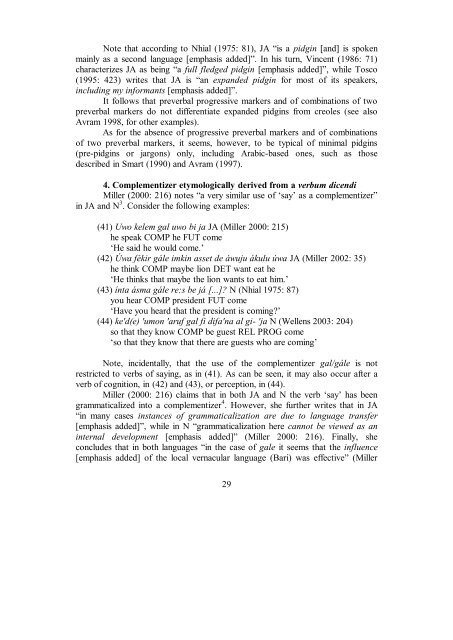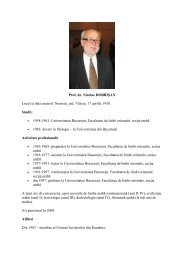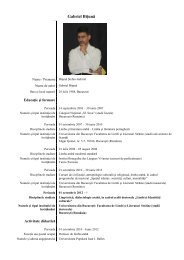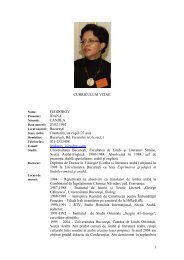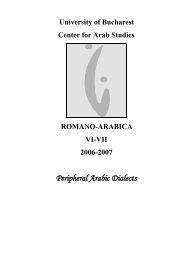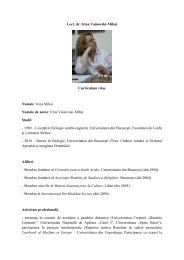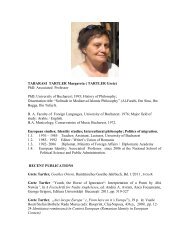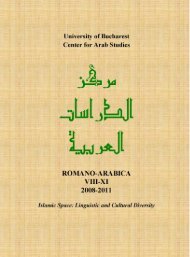Arabic Linguistics
Arabic Linguistics
Arabic Linguistics
Create successful ePaper yourself
Turn your PDF publications into a flip-book with our unique Google optimized e-Paper software.
Note that according to Nhial (1975: 81), JA ―is a pidgin [and] is spoken<br />
mainly as a second language [emphasis added]‖. In his turn, Vincent (1986: 71)<br />
characterizes JA as being ―a full fledged pidgin [emphasis added]‖, while Tosco<br />
(1995: 423) writes that JA is ―an expanded pidgin for most of its speakers,<br />
including my informants [emphasis added]‖.<br />
It follows that preverbal progressive markers and of combinations of two<br />
preverbal markers do not differentiate expanded pidgins from creoles (see also<br />
Avram 1998, for other examples).<br />
As for the absence of progressive preverbal markers and of combinations<br />
of two preverbal markers, it seems, however, to be typical of minimal pidgins<br />
(pre-pidgins or jargons) only, including <strong>Arabic</strong>-based ones, such as those<br />
described in Smart (1990) and Avram (1997).<br />
4. Complementizer etymologically derived from a verbum dicendi<br />
Miller (2000: 216) notes ―a very similar use of ‗say‘ as a complementizer‖<br />
in JA and N 3 . Consider the following examples:<br />
(41) Uwo kelem gal uwo bi ja JA (Miller 2000: 215)<br />
he speak COMP he FUT come<br />
‗He said he would come.‘<br />
(42) Úwa fékir gále imkin asset de áwuju ákulu úwa JA (Miller 2002: 35)<br />
he think COMP maybe lion DET want eat he<br />
‗He thinks that maybe the lion wants to eat him.‘<br />
(43) ínta ásma gále re:s be já [...]? N (Nhial 1975: 87)<br />
you hear COMP president FUT come<br />
‗Have you heard that the president is coming?‘<br />
(44) ke'd(e) 'umon 'aruf gal fi difa'na al gi- 'ja N (Wellens 2003: 204)<br />
so that they know COMP be guest REL PROG come<br />
‗so that they know that there are guests who are coming‘<br />
Note, incidentally, that the use of the complementizer gal/gále is not<br />
restricted to verbs of saying, as in (41). As can be seen, it may also occur after a<br />
verb of cognition, in (42) and (43), or perception, in (44).<br />
Miller (2000: 216) claims that in both JA and N the verb ‗say‘ has been<br />
grammaticalized into a complementizer 4 . However, she further writes that in JA<br />
―in many cases instances of grammaticalization are due to language transfer<br />
[emphasis added]‖, while in N ―grammaticalization here cannot be viewed as an<br />
internal development [emphasis added]‖ (Miller 2000: 216). Finally, she<br />
concludes that in both languages ―in the case of gale it seems that the influence<br />
[emphasis added] of the local vernacular language (Bari) was effective‖ (Miller<br />
29


